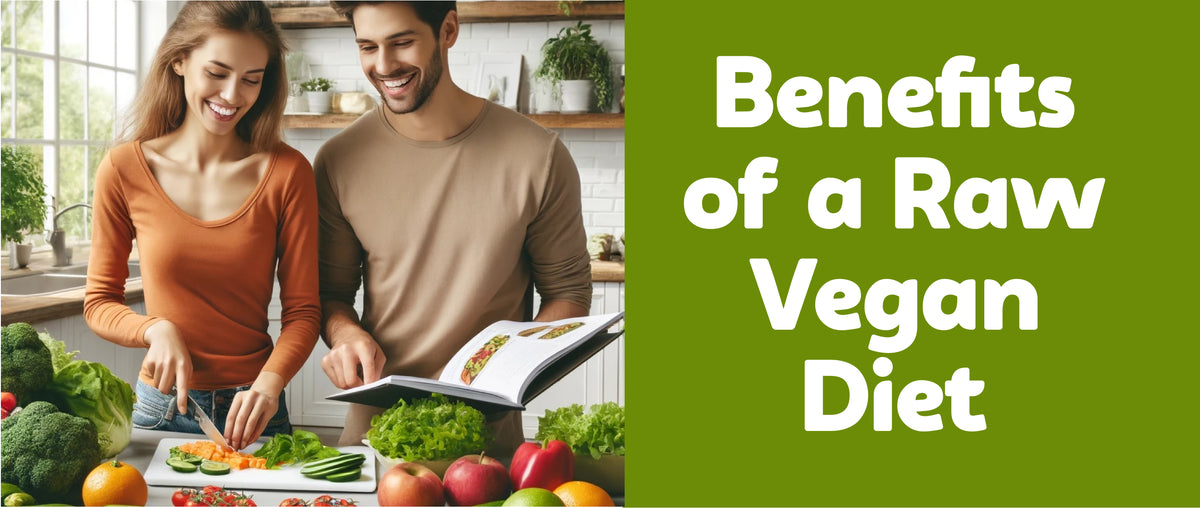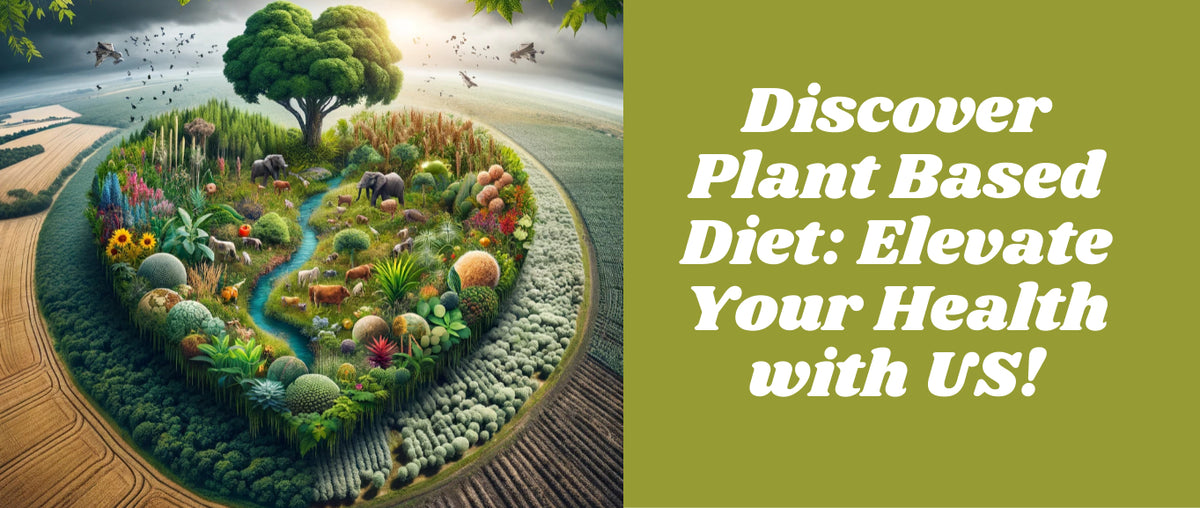Benefits of a Raw Vegan Diet
The raw vegan diet can be categorized into various types, each with its unique approach and focus. Understanding these different variations can help you choose the best one for your needs and preferences.
Fruit-Based Raw Diet
A fruit-based raw diet primarily consists of fresh fruits. This diet emphasizes high water content and natural sugars, providing quick energy and hydration. Common fruits include apples, bananas, berries, citrus fruits, and melons.
Sprout-Based Raw Diet
This diet focuses on consuming sprouted seeds, grains, and legumes. Sprouting enhances the nutritional value and digestibility of these foods. Commonly sprouted items include quinoa, buckwheat, and lentils.
Gourmet Raw Diet
The gourmet raw diet includes more complex recipes and dishes that often mimic cooked foods. These recipes use raw ingredients but require advanced preparation techniques, such as dehydrating, fermenting, and blending. Examples include raw lasagna, raw pizza, and raw desserts.

Nutritional Benefits of a Raw Vegan Diet
The raw vegan diet is known for its high nutrient density and health-promoting properties. Raw fruits and vegetables are packed with essential vitamins and minerals, which support overall health and well-being.
Rich in Vitamins and Minerals
Raw fruits and vegetables are excellent sources of vitamins A, C, and E, as well as minerals like potassium, magnesium, and folate. These nutrients play vital roles in maintaining healthy bodily functions, including immune support, bone health, and cardiovascular health.
Antioxidant Properties
Many raw foods contain high levels of antioxidants, which help protect the body from oxidative stress and inflammation. Antioxidants neutralize free radicals, reducing the risk of chronic diseases and promoting healthy aging.
Health Benefits of a Raw Vegan Diet
The Raw Vegan Diet offers a range of health benefits due to its emphasis on whole, unprocessed plant foods. One of the primary benefits is improved digestion. Raw vegan foods are naturally high in dietary fiber, which promotes healthy digestion and regular bowel movements. Fiber helps prevent constipation and supports overall gut health. Additionally, raw foods contain natural enzymes that aid in digestion. Cooking food can destroy these enzymes, so eating raw helps preserve them, improving digestive efficiency.
Another significant benefit is weight loss and management. Many raw vegan foods, such as fruits and vegetables, are low in calories yet high in nutrients, making it easier to maintain a healthy diet and achieve weight loss goals. The high nutrient content of raw foods helps satisfy hunger and reduce overeating, supporting weight management. The diet is also known for enhancing energy levels. Raw vegan foods provide sustained energy due to their high nutrient content and lack of processed sugars. The natural sugars in fruits provide a quick energy boost without the crash associated with refined sugars. Consuming a diet rich in raw fruits and vegetables supports overall well-being and vitality, helping you feel more energetic throughout the day.
Better skin health is another notable benefit of the raw vegan diet. Many raw fruits and vegetables have high water content, which helps keep the skin hydrated and glowing. Proper hydration is essential for maintaining healthy skin. Furthermore, the antioxidant properties of raw foods help protect the skin from damage and promote a youthful appearance. Antioxidants neutralize free radicals that can cause premature aging and skin damage.
Potential Risks and Considerations
While the raw vegan diet offers numerous benefits, it's important to be aware of potential risks and considerations to ensure you maintain a balanced and healthy diet. One risk is nutrient deficiencies, particularly Vitamin B12, which is primarily found in animal products. Those on a raw vegan diet may need to take supplements to prevent deficiency. Additionally, it's essential to ensure adequate intake of iron and protein. High-protein snacks, such as nuts and seeds, can help meet protein needs and prevent deficiencies.
Food safety is another consideration. Raw foods can be susceptible to bacterial contamination, so it's crucial to wash and handle them properly. Be cautious with foods like sprouts, which can harbor harmful bacteria if not handled correctly. Some individuals may also experience digestive discomfort when transitioning to a high-fiber diet. It's important to introduce raw foods gradually and ensure a balanced intake of various food groups to avoid digestive issues.
Foods to Eat on a Raw Vegan Diet
A raw vegan diet includes a variety of nutrient-dense, plant-based foods that can be enjoyed in their natural state. Recommended foods include fruits like apples, bananas, berries, citrus fruits, and melons, which are excellent sources of vitamins, minerals, and natural sugars. Vegetables such as leafy greens, carrots, cucumbers, bell peppers, and tomatoes are packed with vitamins, minerals, and antioxidants. Nuts and seeds, including almonds, walnuts, chia seeds, flaxseeds, and hemp seeds, provide essential fatty acids, protein, and fiber. Sprouted grains like quinoa, buckwheat, and wild rice can enhance the nutritional value and digestibility of the diet. These foods are high in protein and low in calories, making them ideal for weight management and overall health.
Foods to Avoid on a Raw Vegan Diet
Certain foods do not align with the principles of a raw vegan diet and should be avoided. These include any food that has been heated above 118°F (48°C), as it is not considered raw. Animal products such as meat, dairy, eggs, and other animal-derived ingredients are also excluded. Additionally, processed foods like refined sugars, oils, and packaged snacks often contain additives and preservatives that are not compatible with a raw vegan diet. Avoiding these foods ensures that you adhere to the principles of raw veganism and maximize the health benefits of the diet.
How to Start a Raw Vegan Diet
Transitioning to a raw vegan diet can be a rewarding experience, but it's important to do it gradually and mindfully. Start slowly by incorporating more raw fruits and vegetables into your current diet and gradually increase the proportion of raw foods over time. Staying hydrated is crucial; drink plenty of water and include hydrating foods like cucumbers and melons in your diet. Essential tools and equipment, such as a high-speed blender, juicer, and dehydrator, can make preparing raw foods easier and more enjoyable. A good blender can help you make smoothies, soups, and sauces, while a juicer allows you to extract juice from fruits and vegetables for nutrient-packed drinks. A dehydrator can be used to create raw snacks like fruit leathers and kale chips without cooking them.
Start Slowly
Begin by incorporating more raw fruits and vegetables into your current diet. Gradually increase the proportion of raw foods over time to allow your body to adjust to the new eating habits.
Stay Hydrated
Drink plenty of water and include hydrating foods like cucumbers and melons in your diet. Proper hydration is essential for overall health and well-being.
Invest in Quality Tools
A high-speed blender, juicer, and dehydrator are valuable tools for preparing raw foods. These tools can help you create a variety of delicious and nutritious meals, making the transition to a raw vegan diet easier and more enjoyable.

How to Prepare Food on a Raw Vegan Diet
Proper food preparation is key to maintaining the nutritional integrity of raw vegan foods. Blending, juicing, and dehydrating are common techniques used in raw vegan food preparation. Blending helps retain the fiber and nutrients in fruits and vegetables, making it an excellent method for making smoothies and soups. Juicing can concentrate the nutrients in fruits and vegetables, making it easier to consume a large quantity of nutrients in one serving. Dehydrating allows you to preserve foods and create crispy, flavorful snacks without cooking. Investing in quality tools such as a good blender, juicer, and dehydrator can help you create a variety of delicious and nutritious meals. Experimenting with recipes and techniques can keep your meals exciting and diverse. There are many raw vegan recipe books and online resources available to help you get started.
Delicious Raw Vegan Recipes
Incorporating a variety of delicious raw vegan recipes can make sticking to the diet enjoyable and satisfying. For breakfast, try smoothie bowls by blending fruits and topping with nuts and seeds for a nutrient-dense start to the day. Chia pudding is another simple and nutritious breakfast option; mix chia seeds with almond milk and let it sit overnight, then flavor with fruits and spices. For lunch and dinner, zucchini noodles made with a spiralizer and topped with raw tomato sauce offer a light and refreshing alternative to traditional pasta. Raw tacos, using lettuce leaves as shells and filled with a mix of vegetables and avocado, are a fun and customizable meal. Snacks and desserts can include raw energy balls made by blending dates, nuts, and seeds, providing a convenient and portable snack. Fruit sorbet, made by blending frozen fruits, offers a simple and healthy dessert option.
Personal Testimonials and Success Stories
Hearing from others who have successfully transitioned to a raw vegan diet can provide inspiration and motivation. Success stories from individuals who have experienced significant health improvements can offer real-life examples of the benefits of a raw vegan diet. Interviews with long-term raw vegans can provide expert tips and insights to help you navigate challenges and make the most of the raw vegan lifestyle. Personal testimonials and case studies can be particularly encouraging for those considering the diet.
Conclusion
The raw vegan diet offers numerous benefits, including improved digestion, weight management, and better skin health. By understanding how to implement and maintain this diet, you can enjoy these benefits and support your overall well-being. Embracing a plant based diet can lead to a healthier, more vibrant life.










